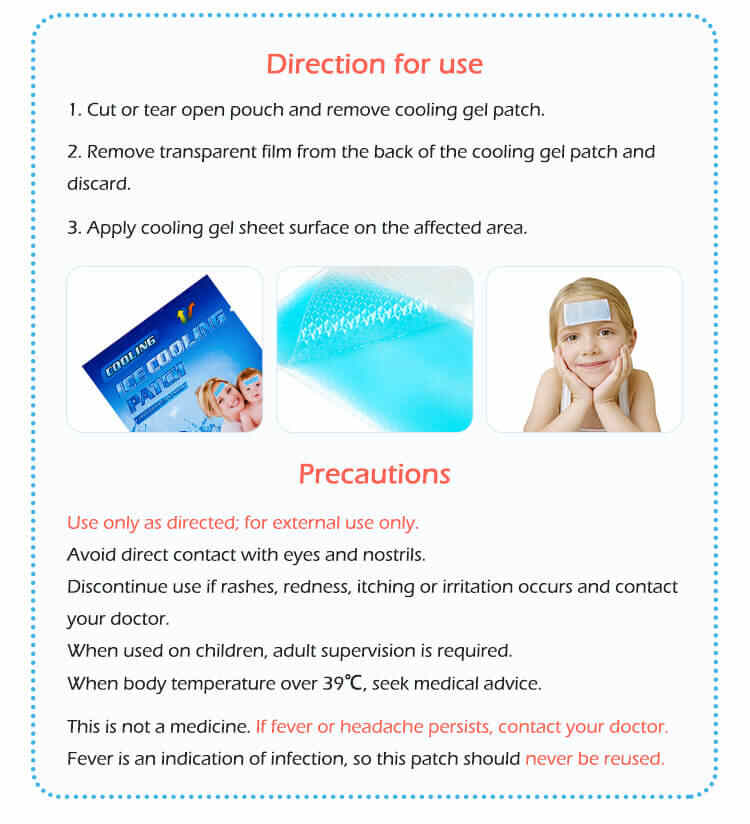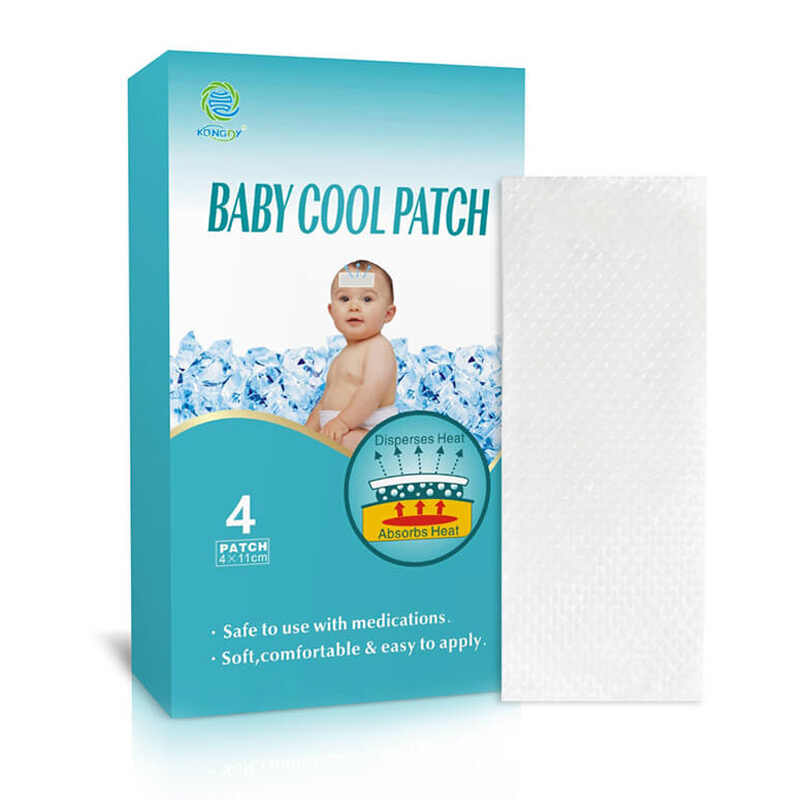What Certifications Should a Reliable Menthol Cooling Patches Manufacturer Have?
The global demand for wellness and therapeutic products such as menthol cooling patches is steadily increasing. Businesses entering this market must carefully evaluate the credibility and reliability of their chosen menthol cooling patches Manufacturer. One of the most crucial indicators of reliability is certification.
Whether you are developing Custom menthol cooling patches through a menthol cooling patches OEM partner or launching Private Label menthol cooling patches, certifications ensure that the products are safe, effective, and compliant with international regulations. Choosing a manufacturer with the right credentials not only protects consumers but also strengthens your brand’s reputation and opens doors to global markets.
This article explores the key certifications every reliable menthol cooling patches Supplier should have, why they matter, and how they impact consumer trust and business success.

1. Why Certifications Matter in the Menthol Cooling Patches Industry
Certifications serve as independent verification that a menthol cooling patches Manufacturer meets established standards for quality, safety, and regulatory compliance. They provide several benefits:
Consumer Safety – Ensures patches are skin-friendly and free from harmful substances.
Regulatory Compliance – Meets local and international rules for product distribution.
Market Access – Required for exporting to regions such as the U.S., EU, or Asia.
Brand Trust – Builds credibility with distributors, retailers, and consumers.
Reduced Risk – Minimizes chances of recalls, lawsuits, or reputational damage.
Without the right certifications, even well-designed Custom menthol cooling patches may face barriers to market entry.
2. Essential Certifications for a Reliable Menthol Cooling Patches Manufacturer
2.1 GMP (Good Manufacturing Practice) Certification
GMP ensures that products are consistently produced under safe and hygienic conditions. A menthol cooling patches Manufacturer with GMP certification guarantees:
Controlled environments during production
Proper handling of raw materials
Safe packaging and labeling practices
Reduced risk of contamination
For businesses selling Private Label menthol cooling patches, GMP compliance ensures products meet the highest manufacturing standards.
2.2 ISO 13485 Certification
ISO 13485 is an internationally recognized quality management standard specifically for medical devices and healthcare-related products. For menthol cooling patches OEM production, ISO 13485 demonstrates that:
The manufacturer maintains consistent quality management systems
Products comply with global healthcare regulations
Documentation and traceability are strictly managed
This certification is particularly valuable for companies distributing Custom menthol cooling patches in regulated markets.
2.3 FDA Registration (for the U.S. Market)
To sell menthol cooling patches in the United States, FDA registration is essential. A registered menthol cooling patches Supplier demonstrates compliance with U.S. regulations for safety and labeling. FDA registration confirms that:
The manufacturing facility has been evaluated by the FDA
The patches meet safety and efficacy guidelines
Proper labeling and marketing standards are followed
For businesses aiming to expand in the U.S., FDA registration is non-negotiable.
2.4 CE Marking (for the European Market)
CE Marking is required for products sold in the European Economic Area. A menthol cooling patches Manufacturer with CE certification ensures:
The product meets EU safety and environmental standards
Compliance with EU medical device regulations
Smooth entry into European retail and healthcare markets
For Private Label menthol cooling patches targeting Europe, CE compliance provides a competitive edge.
2.5 ISO 9001 Certification
While ISO 13485 is healthcare-specific, ISO 9001 covers broader quality management standards. It reflects a manufacturer’s commitment to:
Continuous improvement in production processes
Customer satisfaction and feedback integration
Strong quality control systems
Choosing a menthol cooling patches Supplier with ISO 9001 ensures reliability across all aspects of business operations.
2.6 Dermatological Testing Reports
Since Custom menthol cooling patches are applied directly to the skin, dermatological safety is critical. Manufacturers should provide independent test reports showing that patches are:
Hypoallergenic
Non-irritating
Safe for sensitive skin
This certification builds trust with consumers who prioritize safe, skin-friendly products.
2.7 Environmental and Sustainability Certifications
Modern consumers increasingly prefer eco-friendly products. A menthol cooling patches Manufacturer that follows sustainable practices can showcase certifications such as:
ISO 14001 (Environmental Management)
Eco-friendly or biodegradable material certifications
These credentials appeal to environmentally conscious buyers and enhance brand reputation.
3. How Certifications Impact Custom and Private Label Menthol Cooling Patches
3.1 Custom Menthol Cooling Patches
Certifications give businesses confidence when developing Custom menthol cooling patches with unique formulations, herbal extracts, or varied menthol levels. They guarantee that innovation does not compromise safety or compliance.
3.2 Private Label Menthol Cooling Patches
For companies launching Private Label menthol cooling patches, certifications ensure smoother registration, faster import/export approvals, and higher acceptance by retailers and distributors. They also reassure consumers that your branded products meet international quality standards.
4. How to Verify a Menthol Cooling Patches Supplier’s Certifications
Request Documentation – Ask for copies of GMP, ISO, FDA, or CE certificates.
Check Validity – Verify certification numbers through official regulatory websites.
Ask About Renewal – Certifications must be periodically renewed to remain valid.
Third-Party Audits – Consider independent verification for high-volume partnerships.
A truly reliable menthol cooling patches Manufacturer will be transparent and willing to share this information.
5. Red Flags to Avoid
A menthol cooling patches Supplier unwilling to share certifications.
Outdated or expired certificates.
Lack of dermatological testing data.
Inconsistent product quality or lack of traceability.
Working with uncertified suppliers risks consumer safety, legal issues, and reputational harm.
6. Long-Term Business Advantages of Partnering with a Certified Manufacturer
Partnering with a certified menthol cooling patches OEM delivers more than compliance. It ensures:
Consumer trust – Certified products reassure buyers of safety and quality.
Global opportunities – Easier access to international markets.
Risk reduction – Minimized chances of legal or financial setbacks.
Brand growth – Certified products enhance brand image and competitiveness.
In the wellness industry, certifications are not just paperwork—they are a strategic asset.
Conclusion
When choosing a menthol cooling patches Manufacturer, certifications should be a top priority. From GMP and ISO 13485 to FDA registration, CE marking, and dermatological testing, these credentials guarantee safety, quality, and compliance. They also ensure that your Custom menthol cooling patches and Private Label menthol cooling patches can successfully enter global markets and win consumer trust.
By selecting a certified menthol cooling patches Supplier, your business safeguards its reputation, minimizes risks, and gains a competitive edge in a rapidly growing industry.
Related Questions and Answers
Q1: Why is GMP certification important for a menthol cooling patches Manufacturer?
A: GMP ensures that patches are produced in hygienic conditions with consistent quality and safety standards.
Q2: Can I sell Private Label menthol cooling patches in the U.S. without FDA registration?
A: No, FDA registration is required to legally sell patches in the U.S. market.
Q3: Do Custom menthol cooling patches require dermatological testing?
A: Yes, dermatological testing ensures they are safe for skin application, especially for sensitive users.
Q4: What is the difference between ISO 13485 and ISO 9001?
A: ISO 13485 is specific to medical and healthcare products, while ISO 9001 covers broader quality management systems.
Q5: How can I verify a menthol cooling patches Supplier’s certifications?
A: Always request official documents, check validity through regulatory bodies, and confirm they are up to date.






